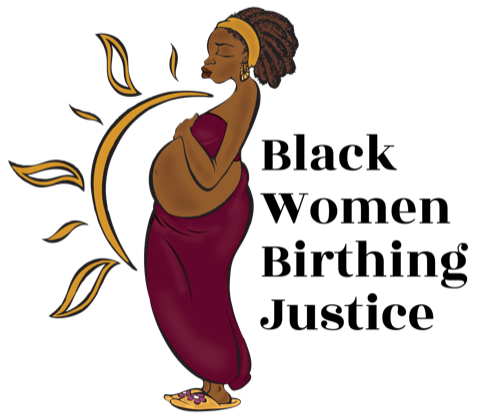Bringing "Older" Moms into Birth Justice
I’m an AMA mom. You know; an Advanced Maternal Age mom. I didn’t think that I was advanced in age when I got pregnant and I didn’t expect to be treated like a high risk case. In fact, I felt quite youthful, healthy and well prepared for pregnancy. That changed days after the unforgettable call from my infertility doctor when I heard those yearned for words: You’re pregnant! From my first prenatal visit, my confidence in my ability to carry and birth my baby, and my judgment in becoming pregnant as a forty-one year old woman, were questioned. Rather than a natural experience to be enjoyed and savored, my pregnancy was stressful, exhausting and at times terrifying as a result of medical interventions that I now know to have been unnecessary. I became just another high-risk statistic: a double jeopardy pregnancy–“black and AMA.”
Reproductive technologies and changing opportunities and pressures in the workforce have changed the makeup of pregnant mamas in the U.S. and other industrialized nations. More and more women are choosing to delay child-bearing while they pursue advanced graduate degrees, build a career, or work through mental wellness or family-of-origin issues. While the average age of first-time mothers in the U.S. is 25 years, the proportion of first births to women aged 35 years and over has multiplied nearly eight times since 1970. Back then, only 1 in 100 first-time pregnant mamas were over 35, today it is closer to 1 in 12.
Women over 35 who try to conceive are more likely to have a medicalized journey to pregnancy. Many of us find it harder to conceive and carry a pregnancy full term, due to endometriosis, fibroids, a decline in egg quality and quantity or other reproductive health conditions. Sexual intimacy with a male partner and at home insemination–the typical routes taken by heterosexual and lesbian women trying to get pregnant respectively–may take much longer or not work at all. As a result, we are more likely to have a closely monitored conception, possibly involving fertility drugs or in-vitro fertilization. For black women, this can be particularly difficult because our fertility is not seen as something to be valued, and because we often lack the funds to pay for expensive treatments. As a result, fertility treatments are seen as by many in our communities as a luxury for elite white women. We may also have internalized the idea that pregnancy is supposed to come easily to us as black women as a result of the “baby-maker” myth.
Regardless of how we got pregnant, we are likely to have fears about our pregnancies. Pregnancy websites and books inform us that we are more likely to experience miscarriage, premature delivery and stillbirth, and that our babies may have chromosomal abnormalities including Down Syndrome. Doctors treat us as at-risk, and send us off for “routine” genetic testing that is not required for younger women, and that proves to be inaccurate in 95 percent of “positive” results. If initial tests results are worrying, we have to choose between amniocentesis–the invasive insertion of a needle into the baby’s amniotic fluid–and the terror and uncertainty of the possibility that the baby we are carrying has a fatal birth condition. Our society’s disablism encourages us to see the life of a child with a birth “defect/difference” as worthless, and to go to any lengths to avoid giving birth to a child with Down Syndrome. As we carry our pregnancies, and try to nurture our hopes and dreams of bringing new life into the world, we are stalked by fear.
So what can you do?
If you are trying to conceive: connect with women/ black women your age who are trying or have conceived; create or join a support group; educate yourself about the large number of women over 35 (and over 40) who have successful pregnancies; persevere.
If you are pregnant: Consider receiving your prenatal care from a midwife who will help you to have a healthy pregnancy without pushing ultrasounds and genetic testing, and will foster your confidence and emotional readiness; work on being the healthiest you can be, enhance your diet, consider a prenatal yoga or fitness class, build stress-relievers into your day; do your research about genetic testing and make an informed decision, don’t let a medical practitioner sign you up without knowing about the emotional and physical impact and risks to you and your baby.
If you are a birth activist or birth worker: educate yourself about ageism in the maternal health system and become an advocate for the right for women to choose to conceive at any age when they feel ready; challenge your own assumptions and judgments; educate yourself about genetic testing, amniocentesis and disablism; defend the right for women to choose whether to carry a baby with birth “defects”/differences full-term without judgment or discouragement.
Useful reading: Testing Women, Testing the Fetus: The Social Implication of Amniocentesis in America, Rayna Rapp, Routledge, 2000.
by Julia Chinyere Oparah
